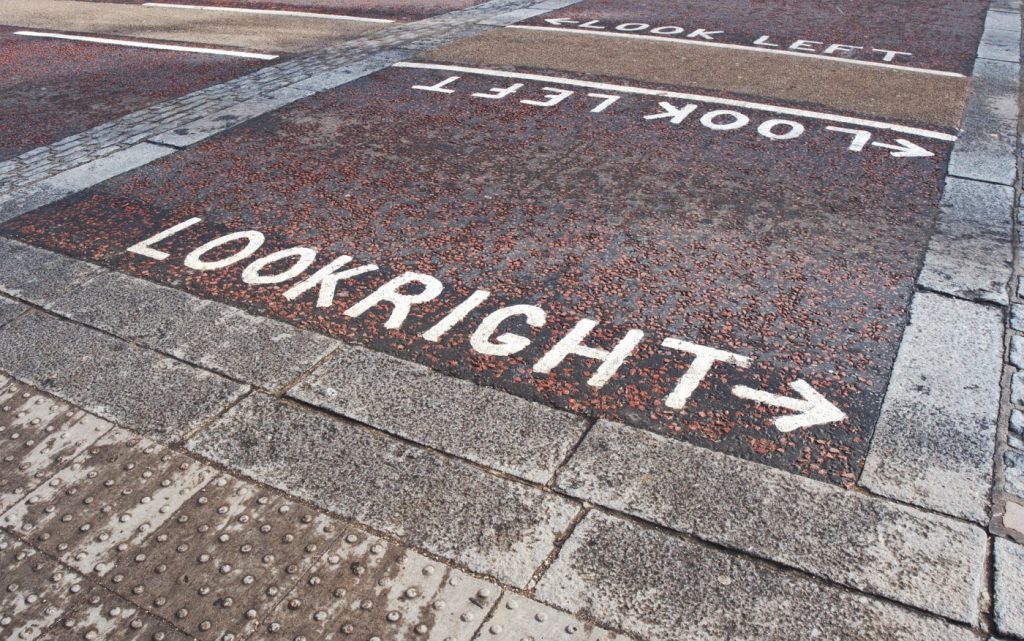Right-wing and Left-wing Christian Approaches to Poverty
Nick Jowett, a member of Church on Action on Poverty in Sheffield, writes on differing Christian approaches to tackling poverty.
It would be right to assume that all Christians are equally concerned about issues of poverty and inequality in society.
The Bible is full of such concerns. The law of Jubilee in Leviticus 25 is intended to prevent anyone accumulating more and more wealth and property. The prophets inveigh against greed and luxury and the unfair treatment of the poor. Proverbs 14:31 says: ‘Whoever oppresses the poor insults his maker, but he who is generous to the needy honours him.’ In the New Testament Gospels one can quote very many passages in which Jesus shows his preferential concern for the poor and warnings against those who amass wealth. ‘The love of money is the root of all kinds of evil,’ says the writer of 1 Timothy (6:10). The church of Acts 4 held all things in common, so that there was no inequality.
So the Bible is very clear that injustice and poverty are a scandal and an offence to God. Those who promote inequality, those who pile up wealth for themselves, those who live in luxury while others suffer and fail to do anything, those who actively cheat the poor – these will have to face the harsh judgement of God. Those who help the poor and suffering people, those who give up their wealth and follow in Jesus’ way, those who sell their property and share it with the community – these will be blessed, because they have sought to bring God’s kingdom into reality

Throughout Christian history, the church has been involved in the promotion of charity towards the poor and vulnerable, following Jesus’ commands, e.g. in the parable of the sheep and the goats (Matthew 25) or that of the Good Samaritan (Luke 10). This has involved both the recommendation of a life of generosity and/or chosen poverty for individual Christians and the organisation of communal charitable activity to help the less fortunate. But the arrival of the modern state, with its economic power and its assumed responsibility for the well-being of its citizens, has opened up new questions which the Bible and Christian traditions may or may not be well equipped to answer.
In the United Kingdom and following upon the consequences of the industrial revolution, it was at the beginning of the 20th century that the state caught up with its responsibility for the nutrition, health, education, employment and housing of its citizens. This gradually removed from the church much of its charitable provision of the same things, pushing church and other charitable activities to a voluntary and more marginal sector. It is clear that charitable provision on its own had been unable to meet the needs of the population.
Following the economic crisis of 2008, Conservative governments have reduced tax-funded community facilities and individual welfare support to a considerable degree, with a renewed hope, not always fulfilled, that private and voluntary provision might fill the gaps.
Christians on the Left are very likely, in addition to Scripture and Christian tradition, to take their point of departure from William Temple’s ‘Christianity and Social Order’ and the creation of the welfare state in the post-war Labour government. By contrast, Conservative Christians may well consider themselves ‘less political’, relying on Bible and Christian tradition alone, but still accepting the necessity of the welfare state, while also being ‘children of Thatcher’ in preferring the freedoms and possibilities of personal/economic initiative in today’s society.
Left-wing Christians will speak a good deal about the kingdom of God, which has both come into being in the ministry of Christ and yet is still to be fulfilled by the end of the age, and they see an important role for humans, and especially Christians, in collaboration with God’s Spirit, in bringing to fruition a just and peaceful earth. But socialist Christians have to face a major challenge: the modern state, with its democratic accountability and economic strength – with power to affect the whole life of its citizens – is very different from the societies in which Christianity appeared and grew: how then can a set of ethical injunctions which grew up in a world where inequality and injustice were either unquestioned or matters for individual responsibility or, at most, for those with power over smaller social groupings, be applied to the modern corporate state?

Their answer would be twofold. Firstly, they would point to the effects of ‘structural sin’, that is the accumulated effect in society of millions of selfish decisions and actions which entrenches huge disparities of wealth and power, rewarding those who come out on top with ever more privileges and insulation from the less fortunate, and at the same time pushing down those whose forebears came from below or lost out in an earlier rat-race, so that they exist in a ghettoised underclass with low paid, boring jobs, poor quality housing and food, education which often does not encourage aspiration, and physical and mental health substantially worse (as measured, for example, by life expectancy) than for better-off echelons of society.
The accumulated genetic outcome of this process is little commented on, but, for those who have been poor for generations, and probably getting poorer, the quality of minds and bodies will almost certainly decline, often to the point at which all efforts to encourage educational progress and feelings of self-worth and initiative may be very difficult or even feel impossible. (I don’t believe they are impossible, but the resources required are well beyond what any political party has shown itself to have the will to provide.)
Our left-leaning Christians will point to the structural sin which has embedded deep chasms of inequality in our society and left a whole section of it almost cut adrift from the rest, people for whose multi-deprivations there are no quick-fix solutions. They will, however, point to the fact that Liberal and Labour governments in the 20th and 21st centuries did make deep inroads into this great divide, with major provisions, through tax and national insurance, of housing, education, the NHS etc, and that Conservative governments have actually accepted the necessity of these provisions. The Left will point out also that Conservative governments have tended to fall back into a ‘freer’ version of society, with many profit-seeking private firms now occupied in social provision, and have allowed processes of division and inequality to become re-embedded.
So state provision is seen by left-leaning Christians as simply a modern method, appropriate to the modern state, of fulfilling God’s command to care for the poor. It’s quite clear that personal or communal charity, valuable though it is, still leaves much of the inequalities and deep unfairness of society untouched, and so, if this is to change, it is only the state that can achieve the heavy lifting that is required. (Many would argue that charity actually confirms and deepens the ‘us and them’ of divided societies: the rich get a nice feeling for handing down just a little of their wealth, but still hold on to most of it; the poor feel humiliated but don’t ever get enough to change their position. Result: nothing changes.)

Secondly, even though modern society is so different from earlier societies, left-wing Christians can point to Biblical justification for state provision. When Jesus was challenged about the payment of tax, he is reported as saying, ‘Pay Caesar what belongs to Caesar’. In Romans 13 Paul also recommends that Christians should willingly pay their taxes. The reason Paul gives for this is that the Roman state provided a system of order and justice and security, and that overarching provision was what one’s taxes were helping to fund. The modern state, of course, provides much more than basic law and order, but the principle of taxation to provide a public good is the same, and therefore tax-funded state provision for the poor can be seen as in line with Christian values.
It might even be possible to argue that Jesus feeding five thousand people at one go is an argument for the state providing a Universal Basic Income for its people.
So what will right-wing Christians say in answer to this?
Of course they will accept the Biblical and later Christian teaching about the evils of mere wealth accumulation and the requirement of charity towards the poor and vulnerable. They will, however, place greater emphasis on personal, individual responsibility: those who are at the bottom of the pile need to be encouraged and stimulated to find a way of bettering themselves, without being featherbedded by state hand-outs which may destroy the motivation to improve their lives; those who are better off should be willing to help the less fortunate, both by generosity and by community and charitable involvement.
There are some issues the right-wing Christians need to face. It is possible that their nerve of effort may be somewhat weakened by making too much of Jesus’ dictum that ‘you will always have the poor among you’ (Matthew 26.11; Mark 14.7; John 12.8; and see Deuteronomy 15.11), even if that particular text is less a universal announcement, and more a defence of a woman’s extravagant generosity towards him (‘You complainers will have plenty more opportunities to help the poor, if that’s what you’re so bothered about!’). Another factor for evangelical Christians which may detract from energy directed towards the ending of poverty is their focus on individual salvation and on a final cosmic consummation, which will be entirely in the hands of God and allow much to fall to perdition; so their efforts are on conversion of individuals, rather than on an incremental collaboration with God to bring in the kingdom on earth. (Having said that, I must add that in the UK in the last twenty or thirty years evangelical Christians have often been in the forefront of imaginative projects with and for the poorer parts of society.)
But in relation to the poor, Conservative Christians are very likely to believe that decades of welfare provision by successive governments have created a culture of dependency, in which too many of the recipients, whether simply receiving what was due to them or positively gaming the system, have got stuck in a poor quality lifestyle, in which it isn’t really worth taking a job, and so you get generation after generation of people with low aspirations and a failure to contribute positively to society. Conservative Christians may well believe that welfare systems have weakened families by encouraging sexual activity and births outside secure relationships and allowing men to escape the responsibilities of fatherhood. So recent Conservative government approaches to poverty have used the need for national austerity as a reason for making welfare benefits and other social provision less generous (which might be caricatured as a ‘stick rather than carrot’ policy to get people out of poverty!), bringing in a Universal Credit system which theoretically makes it easier to move smoothly into work from benefits, trying to create more private sector/self-employed jobs as the route out of poverty, and encouraging ‘Big Society’ voluntary and charitable initiatives to transform deprived communities.
What would justify this approach for a Conservative Christian? It is, for many people, no longer politically correct to say that the poor have somehow deserved their situation, that they have failed to make the right choices and not shown the kind of motivation and energy which could have enabled them to aspire to something better, but I think there is little doubt that a good number of those on the Right believe this. As Christians, they might support this by saying that each of us has personal responsibility before God and that those who fail to work out their salvation with fear and trembling (Philippians 2.12) will inevitably fall by the wayside. Texts such as 1 Timothy 5.8 (‘And whoever does not provide for relatives, and especially for family members, has denied the faith and is worse than an unbeliever’) or 2 Thessalonians 3.10-11 (‘Even when we were with you, we gave you this command: Anyone unwilling to work should not eat. For we hear that some of you are living in idleness, mere busybodies, not doing any work’) may well be quoted at this point.
The belief that God will bring punishment and woe on those who do not live according to his laws can be justified from many Biblical examples, and the rationale for the Prosperity Gospel movement in the United States comes from the obverse of this. Nevertheless, Jesus, when challenged about the man born blind (John 10) or the victims of Herod and the fallen tower at Siloam (Luke 13) specifically denies that their suffering was a direct result of their sin.
The doctrine of personal responsibility is applied by the Right also to those who could potentially help the poor. Jesus challenges the rich man (Mark 10.21) to give up all his wealth and inveighs against those who hang on to their accumulated riches and then die before they can make use of them (Luke 12:16–21). Margaret Thatcher on one occasion, probably prompted by a clever speechwriter, reminded her audience that the Good Samaritan would not have been able to help the poor man who had been mugged on the road without the money that he had previously made. For both rich and poor, the parable of the Talents (Matthew 25) or Pounds (Luke 19) could, for right-wing Christians, provide a justification to encourage rich or poor to make something more from whatever they have been given.
In the end, it’s likely that there will always need to be a balance held between the Left’s desire for universal state provision and the Right’s recognition of personal responsibility in using the world’s resources.
John Milbank has written: ‘It is sometimes said that we can’t stop at charity, and that all Christian reformers have wanted to proceed to enshrining principles and practices in law. One can see the serious point of this and in certain respects such an advance is crucial, and yet there is a profound question mark over that whole tradition which William Temple exemplified. It is a … tradition that tends ultimately to surrender things to the state and risks eroding both the interpersonal and the sense that people are mutually responsible for each other at the immediate social level. Anglican social thought at least has always been divided between this approach and one which stresses less state intervention, and rather more a mixture of the political and the social in the role of intermediate associations where the citizenry act more spontaneously and more for themselves in a genuinely participatory fashion.’
I wonder if it would be fair to say that two CAPs represent the Left and the Right in Christian approaches to poverty. Church Action on Poverty places an emphasis on campaigns to press the government to create the conditions to end poverty. Christians Against Poverty use church members and debt advisers to help people find their way out of debt and start a better life, often as part of the church whose members supported them. It’s clear to me that both approaches – and much more of both approaches – are needed.





I’m a widow with five children I need help too, pls I want the church Action on poverty to help me. I don’t want to sin to take care of my children. Pls help me. More blessings to you
Hi Helen.
I’m very sorry but we’re not able to give help directly to people in crisis – we do campaigning and community work. I suggest you contact your nearest food bank or Citizen’s Advice office. We hope and pray you’ll get the help you need.
Liam Purcell, Church Action on Poverty
An excellent article, many thanks! It carefully illuminates the historical and ongoing debate between the Right and the Left regarding poverty and will hopefully encourage us to examine the ‘other’ view.
A really interesting article the like of which you don’t often read. It felt as if the exposition of the left leaning Christians’ position came more easily to Nick and the arguments flowed more freely, whereas the expanding of the right leaning Christians’ approach, felt more defensive with scriptural quotes that seemed a little less obvious, perhaps – I don’t know.
As I read I wondered about the balance of our personal political views reading back in to our faith and interpretation of scripture, with how much our reading of scripture and Christian faith informs our political stance?
I think the one thing that is the stand out in all of this is the ‘leveling up’ we can achieve is most powerful in our personal expression and at a hyper local level – anything we can achieve at a regional and national level is a bonus, but the further on up you go, the more you realise that the love of money in the deep and darkly entrenched powerful places internationally, will never allow the poor and powerless to gain the controlling hand – but of course we must never stop trying!
Keep working and campaigning with and for those in poverty, Niall and Co – many blessings
Gareth